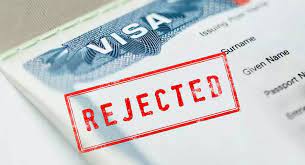 Canada’s latest immigration data reveals a sharp and unprecedented decline in approvals for Indian international students, marking one of the toughest periods for applicants from the country that once dominated Canada’s foreign student intake.
Canada’s latest immigration data reveals a sharp and unprecedented decline in approvals for Indian international students, marking one of the toughest periods for applicants from the country that once dominated Canada’s foreign student intake.
According to figures from Immigration, Refugees and Citizenship Canada (IRCC) obtained by Reuters, 74% of study permit applications from India were rejected in August 2025, more than double the 32% refusal rate recorded in August 2023. By contrast, the overall global rejection rate remained steady at about 40%, while 24% of Chinese applicants were denied during the same period.
The number of Indian applications also dropped sharply, from 20,900 in August 2023 to only 4,515 in August 2025, signalling both waning interest and tougher entry conditions.
Despite the decline, India remains one of Canada’s largest sources of international students, though it now has the highest refusal rate among countries with more than 1,000 approved applicants.
The spike in rejections comes amid a broader government push to reduce temporary migration and combat widespread fraud in the international education sector. In 2023, Canadian authorities uncovered 1,550 fraudulent study permit applications, most originating from India. A strengthened verification system introduced in 2024 flagged more than 14,000 suspicious admission letters from applicants worldwide.
An IRCC spokesperson said Canada has tightened financial requirements and verification procedures to ensure only genuine students are approved. The new measures are part of Ottawa’s ongoing efforts to restore public confidence in the integrity of the immigration system.
The Indian High Commission in Ottawa said it was aware of the surge in refusals but stressed the value of Indian students to Canada’s academic landscape. “Some of the best quality students available in the world are from India, and Canadian institutions have in the past greatly benefited from their talent and academic excellence,” it said in a statement.
The crackdown comes as Canada and India continue to repair diplomatic relations strained after former Prime Minister Justin Trudeau accused the Indian government of involvement in the 2023 killing of a Canadian citizen in Surrey, British Columbia. India has strongly denied the allegation, and tensions between the two countries have affected education and migration discussions.
During her visit to India in October, Foreign Affairs Minister Anita Anand reaffirmed Canada’s interest in maintaining strong educational ties but underscored the need to protect the system from abuse.
The University of Waterloo, home to Canada’s largest engineering school, has reported a two-thirds drop in Indian student enrolment across undergraduate and graduate programs over the past four years. Associate Vice-President Ian VanderBurgh attributed the decline to the federal cap on international students. “We pride ourselves on being an international university,” he said.
The University of Regina and University of Saskatchewan have also reported lower numbers of Indian students.
Visa consultants say Canada’s new rules have raised the bar for applicants. Michael Pietrocarlo of Border Pass, a Toronto-based firm assisting visa seekers, said students now face deeper scrutiny. “It’s not enough to show bank statements. They must now prove where the money came from,” he said.
For many Indian students, Canada’s changing immigration environment has dampened enthusiasm. Jaspreet Singh, founder of the International Sikh Students Association, who came to Canada in 2015, recalls the government’s welcoming message: “Study, work, stay.” That sentiment, he said, has faded.
With growing rejection rates, limited job prospects, and shrinking chances for permanent residency, Singh said some applicants are no longer disappointed when turned away. “They are happy they didn’t come,” he said.
Canada’s tightening stance on international education marks a major shift in one of its most successful immigration programs, leaving both institutions and Indian students grappling with a new era of restriction and scrutiny.